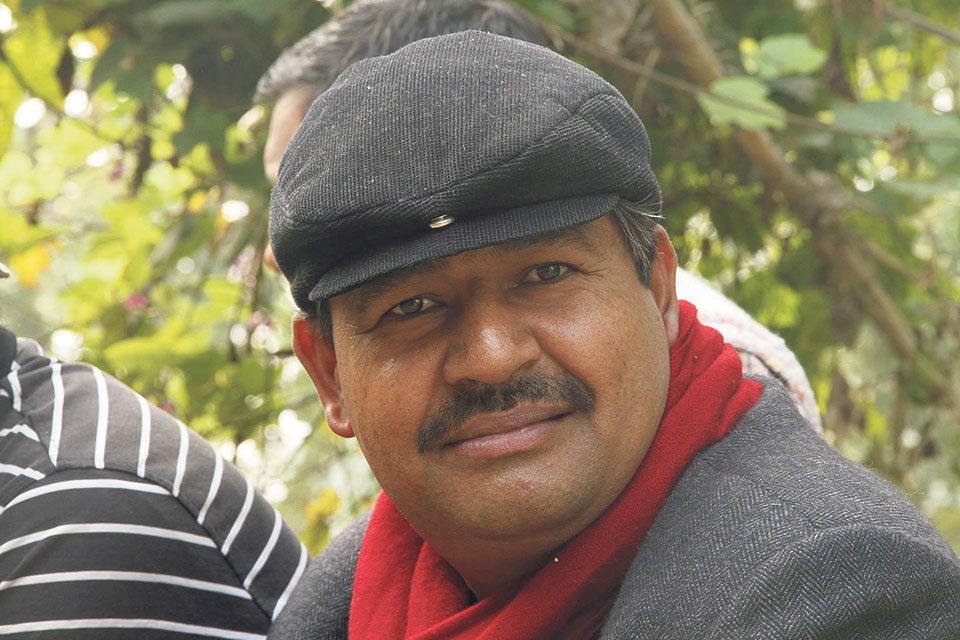
Dedicated to the field of theater for two decades now, Prabhakar Neupane has tried his hands as an actor, playwright and director. Originally from Bhaktapur, he entered the Rastriya Naach Ghar for drama classes in 2054 BS which then provided him exposure to learning more on the subject. Written and directed in 2059 BS, his first play ‘Antar Chhamata’ is based on the lives of visually impaired people. It was highly admired by the critics before his recent one ‘Raat Chirnya Bhanu’ that also garnered much appreciation. His plays ‘Kumari Basne Ghar’ and ‘Poshaak’, have earned him several international accolades including the Youth Peace Ambassador awarded by Germany based organization Universal Peace Foundation in 2014 and the Theater Excellency Award by International Theater Festival in Odisha, India in 2017.
My City’s Sonam Lama caught up with Prabhakar to talk about his professional journey in theater as a playwright and director.
What types of thematic issues do you try to portray through your direction?
Plays and dramas have their age-long history; however, it has been modified with time. I see my plays as the witness of these modifications. The elements of drama would remain as one of the focal points in my plays, but it is also important to invite better changes in style, modality and way of execution. I try to keep traditional touch in my plays through setting, dialogues and costumes. As a playwright and director, my plays are the manifestation of the contemporary society. Since plays are also the reflection of cultural practices, I especially try to portray diverse Nepali cultures through my plays.
In your view, how different are Nepali plays in comparison to international ones?
Every play is guided by the underlying elements of drama. The only difference exists on the thought process and way of execution. As international theatrical plays date back to ancient period, they have grown larger in every respect. Talking about Nepali plays, we have also improvised in larger extent and become able to reach good number of audiences. Many Nepali plays have been written and directed after being inspired from our culture, dismantling the traditional elements of exposition, climax and resolution and have been staged in more creative manner.
The drama culture is growing in Nepal, what could support the growth?
The responsibility more or so lies on the government, general public and playwrights/directors. There are many plays that face financial challenges every year and they don’t ever see the stage. In such cases, the government should allocate adequate budget, organize events and competitions and provide a platform to stage the plays in an inexpensive charge. Research on subject matters and experienced artists can certainly uplift the theater business. Moreover, including drama studies in the course curriculum of students could also have a positive impact as kids can learn the skills at an early age.
Why do you think Nepali plays find comparatively lesser space in the theater? What measures can be adopted to prioritize Nepali plays?
There is an acute lack of documents and factual details about Nepali anthropology and culture. Due to this lack, there remains a gap in-between which takes rigorous research to fulfill. I think promoting our culture through plays or any medium of entertainment has become the need of the time. Anthropological study and research based works should be prioritized. One of the best ways to promote drama culture could be through art, literature and establishing museums.
Any word of advice you would like to convey to our readers?
Theater is a place where the ancient practices are revived, while the definitions of art are redefined in a more pragmatic process. It is through united efforts of youths and art lovers that we can bring about improvements in the sector. Besides plot, character and setting playing its respective roles, the strength of the theater also lies on its audience. Therefore, everyone should make tiny contribution and support theater by joining hands to the effort or being a fair critique to the least.


Leave A Comment